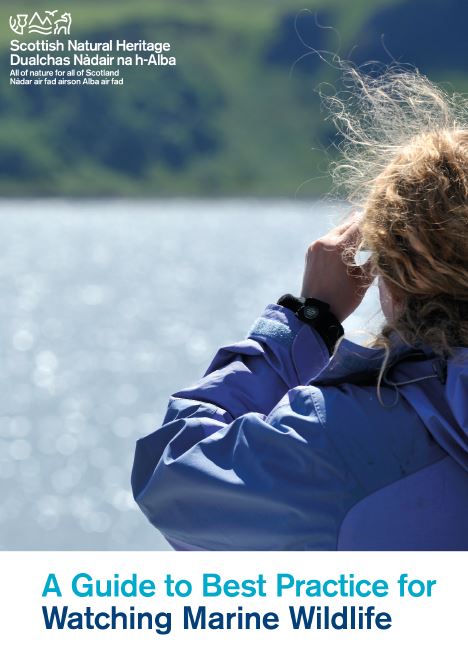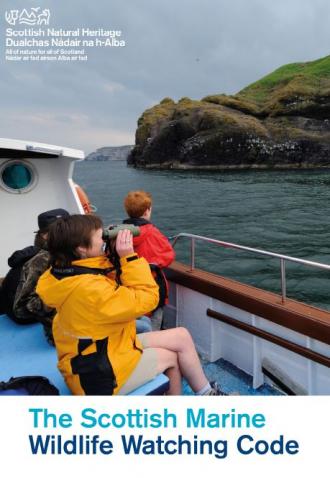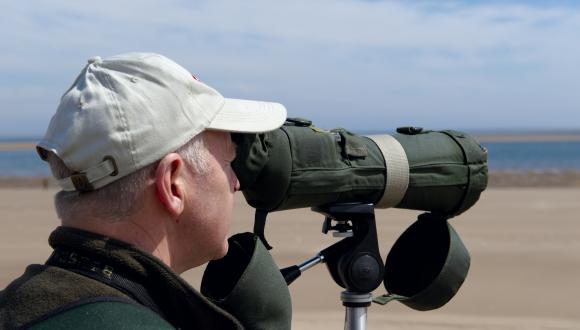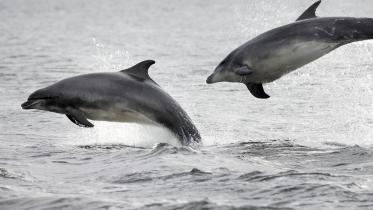A Guide to Best Practice for Watching Marine Wildlife SMWWC

This guide serves to complement The Scottish Marine Wildlife Watching Code. Produced to provide more detailed information and advice on how to behave responsibly when watching marine wildlife, it is broken down into the following major species groups:
- whales, dolphins and porpoises
- basking sharks
- seals
- birds
- otters
- turtles
For each species group, the animals’ status in Scotland, vulnerability to different kinds of disturbance, signs of stress or agitation, and sensitive times and places are discussed.
Our main concern is to minimise disturbance on individual encounters with wildlife. But, inevitably, there will be times when there are so many encounters that animals’ well-being, and even survival, could be compromised. To find out what you can do in these situations, read the section on dealing with cumulative impacts.
What’s more, several annexes provide advice and contact details for recording your sightings and reporting injured animals, as well as details of more specialist codes concerning particular areas, users and species.
Pages: 37
Published: 2017
Document downloads
Disclaimer: Scottish Natural Heritage (SNH) has changed its name to NatureScot as of the 24th August 2020.
At the time of publishing, this document may still refer to Scottish Natural Heritage (SNH) and include the original branding. It may also contain broken links to the old domain.
If you have any issues accessing this document please contact us via our feedback form.





